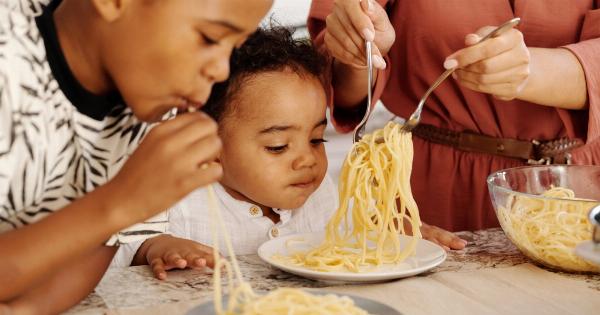Constipation is a common problem among children, and it can be a cause of discomfort and stress for both the child and parent. It is important to understand the causes of constipation in children and find effective solutions.
In this article, we will discuss the causes and solutions for childhood constipation.
What is Constipation?
Constipation is defined as infrequent bowel movements or difficulty in passing stools.
The frequency of bowel movements varies in children, but typically, if a child goes less than three times a week and has hard, dry stools that are difficult to pass, then it is considered to be constipation.
Causes of Childhood Constipation
Constipation in children can occur for various reasons, including:.
: Dietary Factors
Dietary factors play a crucial role in the development of constipation. A diet lacking in fiber-rich foods, such as fruits, vegetables, and whole grains, can lead to constipation in children.
Similarly, a diet high in processed foods, refined carbohydrates, and sugar can also cause constipation.
: Dehydration
Dehydration is another common cause of constipation in children. When the body does not get enough fluids, the stool becomes hard and difficult to pass.
: Medical Conditions
Some medical conditions can cause constipation in children. These include thyroid disorders, inflammatory bowel disease, Hirschsprung’s disease, and cystic fibrosis.
Certain medications, such as antihistamines and antidepressants, can also contribute to constipation.
: Lack of Physical Activity
A sedentary lifestyle or lack of physical activity can also lead to constipation in children. Exercise helps to stimulate bowel movements and promote healthy digestion.
: Anxiety
Children who are anxious or stressed may hold in their stool, leading to constipation. It is important to address any underlying emotional or psychological factors that may be contributing to constipation.
Solutions for Childhood Constipation
There are several effective solutions for childhood constipation, including:.
: Diet
A diet rich in fiber and hydration can help prevent and treat constipation in children. Parents should encourage their children to eat more fruits, vegetables, and whole grains.
Drinking plenty of water and fluids is also important to ensure proper hydration.
: Physical Activity
Encouraging physical activity can help prevent constipation in children. Parents should encourage regular exercise and limit sedentary activities like watching television or playing video games.
: Medical Treatment
In severe cases of childhood constipation, medical treatment may be necessary. This may include laxatives, stool softeners, or enemas. Parents should always consult with their child’s doctor before starting any treatment.
: Toilet Habits
Establishing a regular toilet routine can help prevent constipation in children. Parents should encourage their child to use the bathroom at regular times throughout the day, especially after meals.
: Conclusion
Childhood constipation is a common problem, but it can be prevented and treated with dietary changes, physical activity, and medical treatment when necessary.
By understanding the causes and solutions for constipation in children, parents can help promote healthy digestive habits and ensure their child’s comfort and well-being.






























